By collecting and redistributing food that would otherwise have been thrown away, Food Sharing Delft raises awareness on how to reduce food waste around Delft.
A volunteer puts away fruits and vegetables in the community fridge. (Photos: Justyna Botor)
Twice a week volunteers at Food Sharing Delft get together to try to do something about the problem of food waste. How? By picking up foods from local grocery stores and market vendors that they can no longer sell and would otherwise go to waste, and sharing these in their community fridge. Delta tagged along on one of their hauls.
It’s Saturday around 17:00 and market vendors are starting to stack up their gear. Some boxes of products are being loaded back onto the trucks, others are left in their stands. These are leftover boxes filled with food that vendors are unable to sell the next day. If it weren’t for Food Sharing Delft, all these products would probably have been thrown away.
Creative solutions
In 2019, the volunteers started picking up whatever food was left at prearranged shops and vendors every week. This Saturday, we start at the bread stall, where one of the Food Sharing initiators, Lea Hartmeyer, fills up two big IKEA shopping bags with baguettes and sliced bread.
The vendor happily donates the products. “I hate throwing away perfectly good bread, so this is a great solution.”
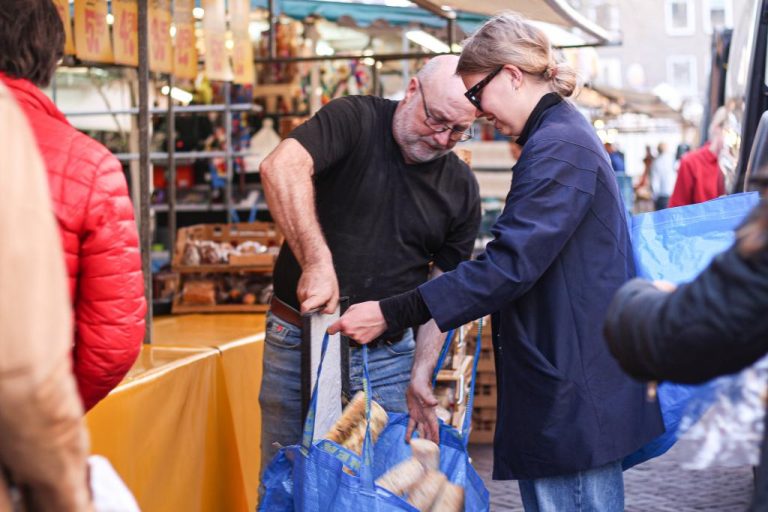
Moving on to one of the fruit and vegetable stands, we collect cabbage, clementines and apples. Hartmeyer notices that the amount of leftovers is significantly less than last week. “You can tell it’s sunny outside,” she says. “Whenever the weather is good, more people come to the market. And the more people who come, the more gets sold. When it’s rainy, there is usually more for us to pick up.”
The previous week, for example, they received an endless amount of mangos. It called for creative solutions as something had to be done with all those mangos. “We made a lot of chutney and ice cream,” one of the volunteers recalls.
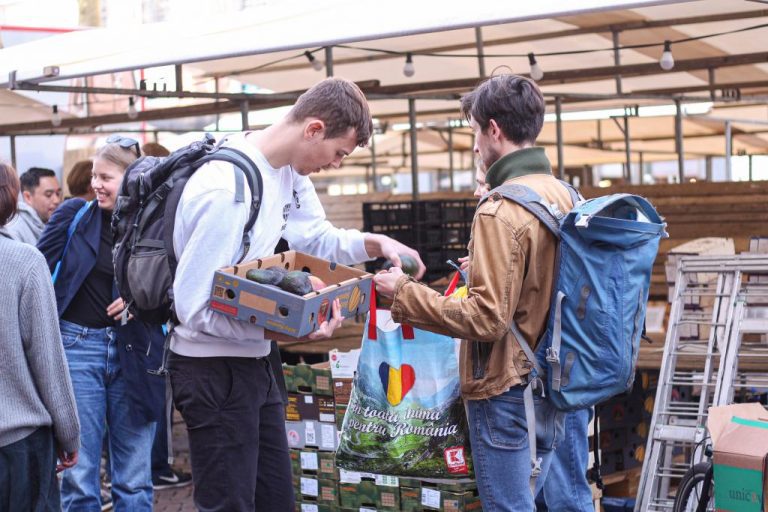
At another stand, volunteers stack a lot of boxes of avocados. Hartmeyer shakes her head. “And that with the environmental impact of avocado farming becoming increasingly more problematic.” She is referring to the highly water-intensive production of avocados. According to research, up to 70 litres of water are needed to produce one avocado. In comparison, approximately 22 litres are needed for an orange, and 5 litres for a tomato.
Community fridge
After collecting all the food waste from the market and packing everything onto cargo bikes, the volunteers head to the community fridge. A sympathetic housing community allowed a refrigerator to be placed in their front garden at Nieuwelaan 50, near the Sebastiaans bridge.
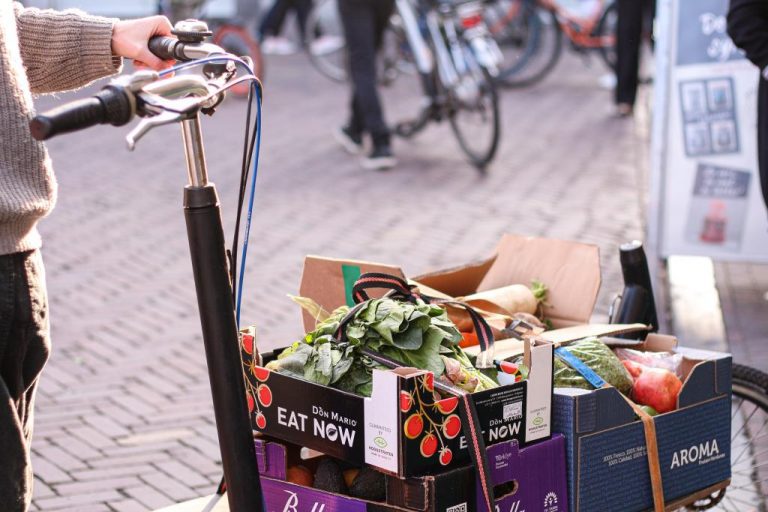
Hartmeyer: “Anyone can use our community fridge to leave or take food. If you are going on holiday and you know that the bunch of carrots you have at home won’t last, you can simply bring it to the community fridge.”
“The only requirements are to never leave anything in the fridge that is not edible or clean, and anything you would not eat yourself.” Before unloading the food from the market into the fridge, volunteers check for rotten or spoiled foods. Anything that is not edible is separated and either used for compost or is thrown away in one of the city’s organic waste bins.
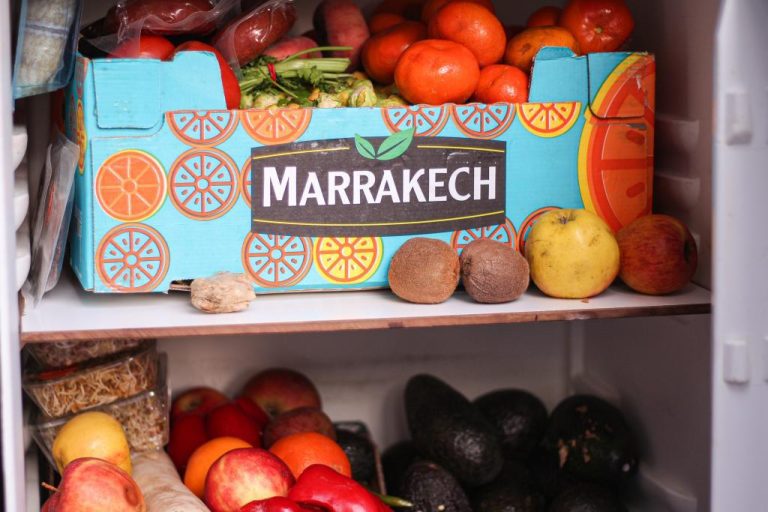
Before the Covid-19 pandemic, volunteers would organise monthly no-waste diners. “As the measures have eased up we are now trying to start up these events again”. For the dinner, the group would cook a meal using the leftover food that they picked up that day or that people brought themselves.
- Food Sharing Delft is looking for more people to help pick up food and organise events. Sign up as a volunteer by mail and you will be added to the Whatsappgroup.
- The community fridge is open to everyone. You can drop by and take whatever you like or leave something you aren’t going to use. The fridge is at Nieuwelaan 50, near the Sebastiaansbrug.
Heb je een vraag of opmerking over dit artikel?
m.vanderveldt@tudelft.nl

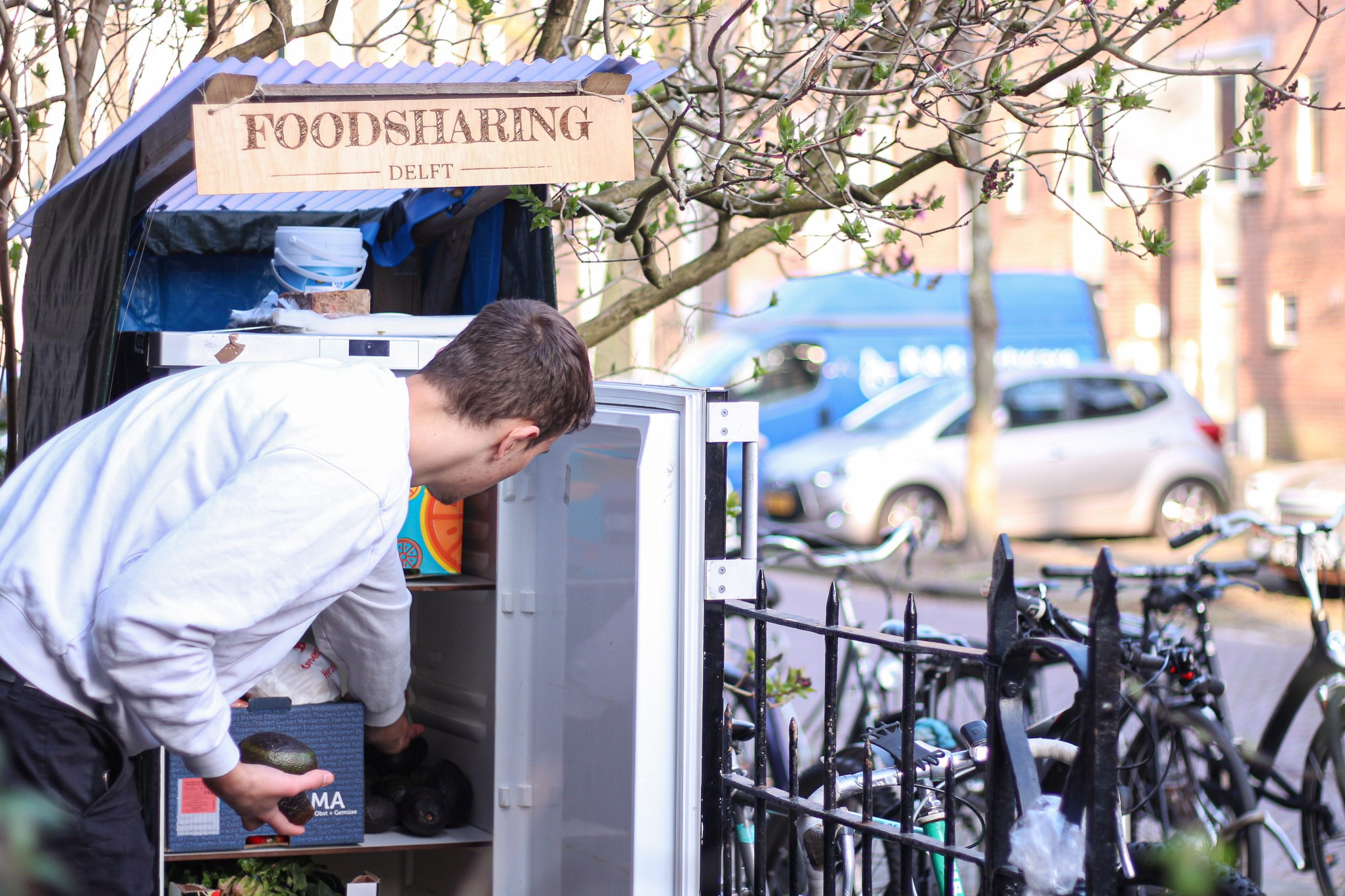
Comments are closed.